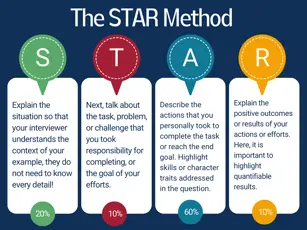How Should Fresh Graduates with No Experience Write Resumes?
For some international students, the course schedule while studying abroad can be quite demanding, leaving little room for internships. Combined with various other factors, the absence of internship experience can be a significant challenge when crafting a resume. Lacking internship experience can result in a less comprehensive resume, filled with clichés that don't stand out in comparison to those of domestic students. Unfortunately, these clichéd resumes are often ineffective with recruiters who are discerning. Many have submitted numerous resumes without receiving replies or interview invitations, which can be disheartening, especially considering the significant investment in an overseas education.
This resume guide aims to provide detailed instructions on how to create a compelling resume for recent overseas graduates with no internship or work experience. Even without prior experience, you can still capture the attention of HR professionals and secure interview invitations.
What Can Replace Internship Experience

As highlighted in the article "How to Write an Effective Resume?" a well-structured resume typically comprises five essential sections: personal information, educational background, work/internship experience, campus and community involvement, and skills and achievements. Work/internship experience often takes up a significant portion of the resume, but for those without such experience, it's crucial to enrich other sections of the resume.
A commonly employed strategy is to emphasize campus and social involvement, project experience, and other relevant areas, focusing on the following directions:
1. Clubs and student associations
Relevant abilities: Activity planning, sales, execution, and communication skills.
2. Volunteer Projects
Education support, community care, environmental initiatives.
Relevant abilities: Organizational coordination, project management, communication, crisis management, and teamwork skills.
3. Classroom Projects/Scientific Research Projects
Conducting group research on specific topics, resulting in effective outputs such as reports and papers.
Relevant abilities: Data research, analysis, presentation, teamwork, copywriting, and report creation.
4. Self-study Projects, Extracurricular Learning
Engaging in self-directed projects with tangible outcomes.
Relevant abilities: Self-study and self-discipline.
5. Award-winning Competitions
Business competitions, debate competitions, entrepreneurship contests.
Relevant abilities: Market research, product analysis, user research, product design, communication, and reporting skills.
Graduates lacking work experience can consider enriching their resumes through these five types of experiences. However, it's essential to avoid overloading the resume and instead tailor each experience to align with the specific job application.
Customized Resumes: Impress HR Even with No Experience

Before writing your resume, identify the position you are applying for, and then align your resume with the job description.
Recruiters typically seek candidates who meet specific job requirements outlined in the job description (JD). The JD will specify the qualifications and skills required for the role, and the decision to offer an interview hinges on whether your resume reflects these requirements.
The recruiter's initial focus is usually on assessing your relevant work experience. As a recent graduate with no prior experience, the key to success is customizing your resume to meet the requirements outlined in the JD of the companies you are interested in.
After understanding the JD, it's time to craft your resume. Even without workplace experience, you can demonstrate your proficiency in the required skills through your educational and extracurricular experiences.
STAR Approach

The STAR rule is an effective way to structure your resume. It stands for Situation, Task, Action, and Result, and is used to describe the context of your experiences, your responsibilities, the actions you took, and the outcomes. Using the STAR rule, you can present your campus experiences effectively.
Here are a few examples:
Strong summarization skills: As a member of the Student Union's XX department, I compiled and drafted several operational standards, which were adopted as department guidelines due to unanimous approval.
Proficient data analysis: During a group project in XX class, I processed over 50,000 data points using Excel and presented the findings in a visually appealing manner using data perspective tables.=
Exceptional planning and creativity: While part of the XX community, I organized successful events, from ideation to execution. One event garnered participation from over 300 students and received high praise.
Content creation proficiency: I created an official account during my studies and independently managed copywriting and content. I've published over 20 articles with a cumulative readership of over 20,000 and have more than 20,000 followers on TikTok with over 200,000 likes.
These campus experiences not only meet but often exceed the skill requirements outlined in job descriptions. It's crucial to remember that while you might not have formal workplace experience, your campus activities and life experiences can still be significant highlights on your resume.
Other Unique Experiences
Apart from your campus experiences, other aspects of your life can be harnessed to create a well-rounded resume:
Passion for gaming: If you are targeting a job in game operations, highlight your years of gaming experience, deep knowledge of various game mechanics and market trends, and your ability to understand player perspectives, game mechanics, and plot development.
Part-time jobs abroad: If you've held part-time positions while studying overseas, emphasize your ability to solve problems independently, accumulate financial experience, and expand your local network. This demonstrates your work ethic and adaptability.
Final Thoughts
It's important to recognize that you may lack the skillset typically associated with the workplace. However, your previous experiences, when viewed through the lens of the JD and the STAR rule, can demonstrate your competence and suitability for the job.
In summary, the absence of work or internship experience is a challenge when seeking employment, but it doesn't have to be insurmountable. By carefully analyzing the specific needs of recruiters and identifying the skills required in the JD, you can create a tailored resume that impresses HR professionals and increases your chances of landing the job you desire.
Aniday's HR Services
Headhunting Service
Find and recruit quality candidates in just 1 week! Supported by 40,000 experienced headhunters in IT, Finance, Marketing… capable of recruiting in any region.
Headhunting Service ➔Employer of Record (EOR) Service
On behalf of your business, we recruit employees and handle payroll without the need to establish a company in markets such as Vietnam, Singapore, Malaysia, India, Indonesia…
Employer of Record (EOR) Service ➔